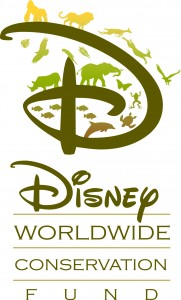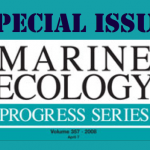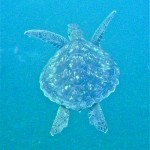M Receives Disney Conservation Grant for a Major Project on Whales
 Sainte-Luce, QC, 13 September 2013 – M–Expertise Marine and their US partners at the Third Millennium Foundation have been awarded a $25,000 grant from the Disney Worldwide Conservation Fund (DWCF). The conservation grant recognizes Dr. Lyne Morissette and her team’s efforts to promote the study and protection of whales and their habitat in the Atlantic Ocean through an innovative program of research, conservation and education called The Great Whales Journey. The project was born in 2010 from the idea that there is no better way to make a difference than to link scientific research to education and conservation efforts. “It’s wonderful to see that three years later the DWCF still believes in this project and allows us to pursue our efforts toward a better understanding and protection of whales and their habitat in the North Atlantic” says Dr. Lyne Morissette, CEO of M-Expertise marine and leader of the project. “What’s wonderful about The Great Whales Journey is that it brings together a whole network of world-renowned scientists, conservation organizations and education initiatives in Canada as well as in the Eastern Caribbean. Whales don’t know borders, we all work together to protect them all year round.” “Some outstanding field work and educational activities are being undertaken in the countries concerned; we are grateful to the Disney Worldwide Conservation Fund for its support to help us forge the links between them to create a strong and meaningful network in support of these magnificent animals,” says Leslie Busby, Executive Director of U.S.-based Third Millennium Foundation. Based on the idea that “we protect what we love and we love what we know,” the Great Whales Journey project will pursue benign scientific research on blue and humpback whales in the North Atlantic, as well as create an important education program linking elementary school classes from Canada to the Eastern Caribbean – the feeding and breeding grounds of humpback whales. Conservation efforts already in place in these countries, including those in support of important protected areas such as the Saguenay-Saint-Lawrence Marine Park in Québec and the Agoa Marine Mammal Sanctuary in the French West Indies, will be linked through a vast network that will eventually cover the whole migration range of large cetaceans and thus protect them all year round. Summer 2014 will be a marking moment for the project when from on board the magnificent Roter Sand, an 85-foot sailing ship devoted to the ocean conservation and owned by ÉcoMaris, a long-term partner of Dr. Morissette’s research in the St. Lawrence, an important expedition will follow the return of the whales in to the St. Lawrence from their Caribbean wintering grounds. This expedition will bring together a number of international experts and will stop for conferences and educational events in different cities along the Great Whale Journey return route, from Magdalene Islands to the Saguenay-Saint-Lawrence Marine Park. The Disney Worldwide Conservation Fund works to protect species and habitats, and connect kids to nature to help develop lifelong conservation values. Since its founding in 1995, DWCF has supported more than 1,000 conservation programs in 112 countries. Lyne Morissette’s project is the only one in Québec to be recurrently funded by the DWCF. For information on Disney’s commitment to conserve nature visit www.disney.com/conservation. About The Great Whales Journey Project “We protect what we love, and we love what we know.” The best way to know and protect the oceans is to explore them. The project aims to promote the study and conservation of whales all along their North Atlantic migration route (from Eastern Canada to the Caribbean Sea), and go on a great whale journey aboard a sailing ship where scientists, NGOs, communities and schoolchildren will work together to study the ecology of whales, learn about the sea, and promote ocean conservation on a global scale. The project aims to promote and enable conservation of great whales through a global network of collaboration and pairing of research institutes, marine protected areas (MPAs), and schools. The goal is to engage coastal communities in conservation actions for ensuring healthy ecosystems and sustainable use of marine resources. The deployment of our research, conservation and education actions covers Caribbean and North American countries, representing crucial habitats for our 2 ambassadors, blue and humpback whales: their feeding area (the St. Lawrence estuary, in Canada), and humpback whales’ breeding area (the Caribbean Sea). Indeed, in their long journey from north to south, great whales are facing different threats (oil spill area in their route, climate change and limited food resources due to over-exploitation in the north; whaling, pollution and disturbance in the south). Identifying these threats and understanding the ecology of great whales will help to develop actions to enhance their conservation status, and therefore contribute to maintaining the biodiversity of these rich marine habitats. This will be done by pursuing a well-implemented partnership between experts and organizations from the Caribbean and marine mammal experts in Canada in collaboration with governmental and NGO agencies dedicated to the conservation of marine resources, and all committed to preserving our ocean’s biodiversity through science and education. FOR ALL MEDIA ENQUIRIES: Contact Project leader Dr Lyne Morissette at 418-750-5685
Sainte-Luce, QC, 13 September 2013 – M–Expertise Marine and their US partners at the Third Millennium Foundation have been awarded a $25,000 grant from the Disney Worldwide Conservation Fund (DWCF). The conservation grant recognizes Dr. Lyne Morissette and her team’s efforts to promote the study and protection of whales and their habitat in the Atlantic Ocean through an innovative program of research, conservation and education called The Great Whales Journey. The project was born in 2010 from the idea that there is no better way to make a difference than to link scientific research to education and conservation efforts. “It’s wonderful to see that three years later the DWCF still believes in this project and allows us to pursue our efforts toward a better understanding and protection of whales and their habitat in the North Atlantic” says Dr. Lyne Morissette, CEO of M-Expertise marine and leader of the project. “What’s wonderful about The Great Whales Journey is that it brings together a whole network of world-renowned scientists, conservation organizations and education initiatives in Canada as well as in the Eastern Caribbean. Whales don’t know borders, we all work together to protect them all year round.” “Some outstanding field work and educational activities are being undertaken in the countries concerned; we are grateful to the Disney Worldwide Conservation Fund for its support to help us forge the links between them to create a strong and meaningful network in support of these magnificent animals,” says Leslie Busby, Executive Director of U.S.-based Third Millennium Foundation. Based on the idea that “we protect what we love and we love what we know,” the Great Whales Journey project will pursue benign scientific research on blue and humpback whales in the North Atlantic, as well as create an important education program linking elementary school classes from Canada to the Eastern Caribbean – the feeding and breeding grounds of humpback whales. Conservation efforts already in place in these countries, including those in support of important protected areas such as the Saguenay-Saint-Lawrence Marine Park in Québec and the Agoa Marine Mammal Sanctuary in the French West Indies, will be linked through a vast network that will eventually cover the whole migration range of large cetaceans and thus protect them all year round. Summer 2014 will be a marking moment for the project when from on board the magnificent Roter Sand, an 85-foot sailing ship devoted to the ocean conservation and owned by ÉcoMaris, a long-term partner of Dr. Morissette’s research in the St. Lawrence, an important expedition will follow the return of the whales in to the St. Lawrence from their Caribbean wintering grounds. This expedition will bring together a number of international experts and will stop for conferences and educational events in different cities along the Great Whale Journey return route, from Magdalene Islands to the Saguenay-Saint-Lawrence Marine Park. The Disney Worldwide Conservation Fund works to protect species and habitats, and connect kids to nature to help develop lifelong conservation values. Since its founding in 1995, DWCF has supported more than 1,000 conservation programs in 112 countries. Lyne Morissette’s project is the only one in Québec to be recurrently funded by the DWCF. For information on Disney’s commitment to conserve nature visit www.disney.com/conservation. About The Great Whales Journey Project “We protect what we love, and we love what we know.” The best way to know and protect the oceans is to explore them. The project aims to promote the study and conservation of whales all along their North Atlantic migration route (from Eastern Canada to the Caribbean Sea), and go on a great whale journey aboard a sailing ship where scientists, NGOs, communities and schoolchildren will work together to study the ecology of whales, learn about the sea, and promote ocean conservation on a global scale. The project aims to promote and enable conservation of great whales through a global network of collaboration and pairing of research institutes, marine protected areas (MPAs), and schools. The goal is to engage coastal communities in conservation actions for ensuring healthy ecosystems and sustainable use of marine resources. The deployment of our research, conservation and education actions covers Caribbean and North American countries, representing crucial habitats for our 2 ambassadors, blue and humpback whales: their feeding area (the St. Lawrence estuary, in Canada), and humpback whales’ breeding area (the Caribbean Sea). Indeed, in their long journey from north to south, great whales are facing different threats (oil spill area in their route, climate change and limited food resources due to over-exploitation in the north; whaling, pollution and disturbance in the south). Identifying these threats and understanding the ecology of great whales will help to develop actions to enhance their conservation status, and therefore contribute to maintaining the biodiversity of these rich marine habitats. This will be done by pursuing a well-implemented partnership between experts and organizations from the Caribbean and marine mammal experts in Canada in collaboration with governmental and NGO agencies dedicated to the conservation of marine resources, and all committed to preserving our ocean’s biodiversity through science and education. FOR ALL MEDIA ENQUIRIES: Contact Project leader Dr Lyne Morissette at 418-750-5685
 Previous Post
Previous Post Next Post
Next Post